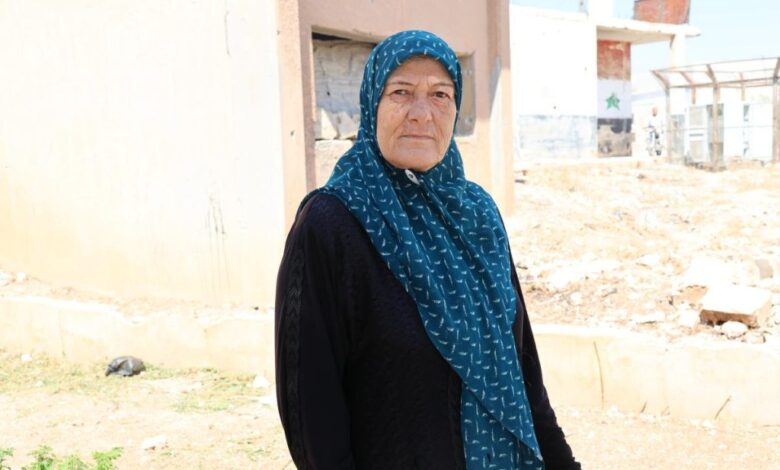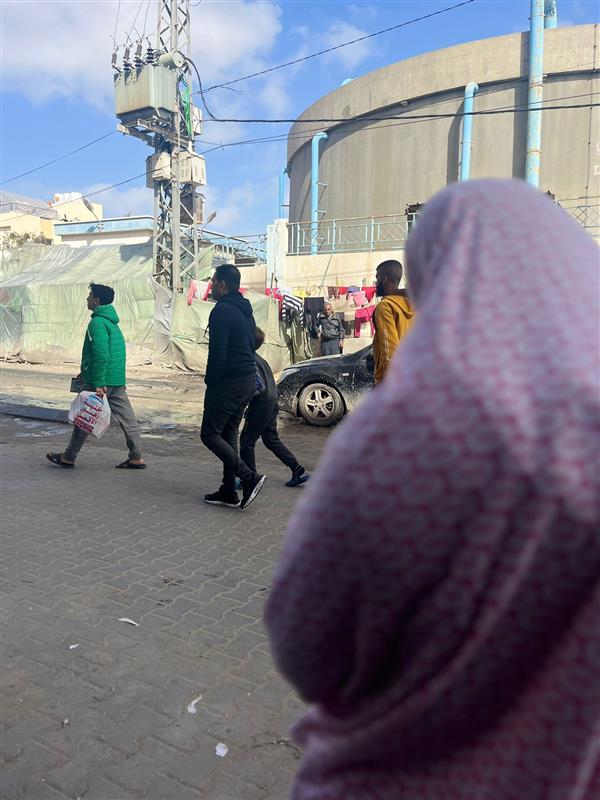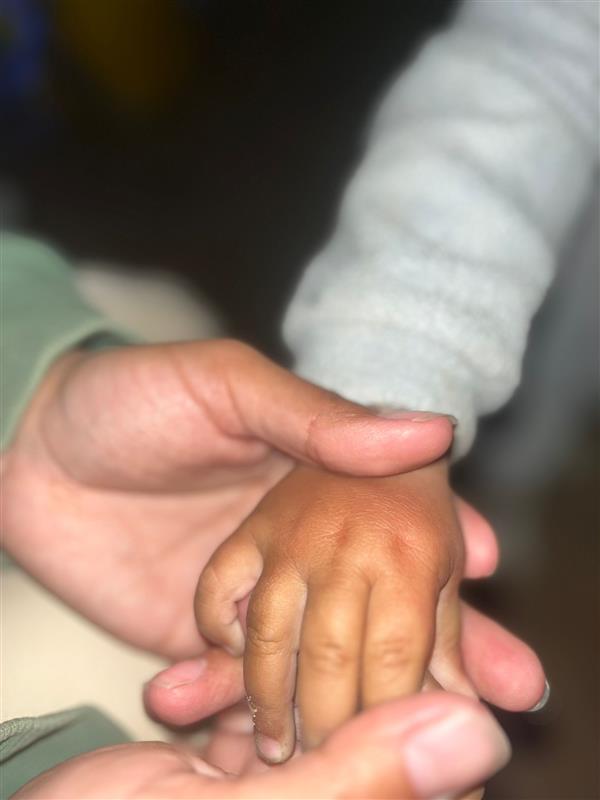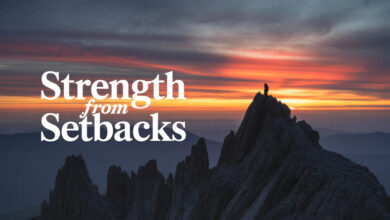Women in Syria, Lebanon, Iraq and oPt: Stories of resilience

Iraq
“I started farming when I was 9 years old. Over the last years, the level of water has decreased and, at the same time, salinisation has increased, which significantly impacted our production. I feel that my land is a part of me, and I would do whatever it takes to protect it.”
© Meethak Al Khatib for Action Against Hunger
Wafaa and Nawwar, Lebanon: strength and resilience in action
Wafaarecalls the tough days, “The conditions were difficult. We worked in tents, surrounded by citrus, lemon, and olive groves. Those days made us strong and taught us to rely on ourselves.
“If there is no one to help a person, they must help themselves,” Wafaa continues. “The more we work, the greater our sense of self becomes. We discover our own value, our own inner strength. Difficult times require you to be strong.”
Wafaa wants to tell every woman out there: “Rely on yourself, for you are your greatest asset. With determination and self-reliance, even the toughest challenges can be overcome.”

Portrait of Wafaa. © Action Against Hunger
Her journey took a turn when she joined Action Against Hunger’s work programme. “We challenged the world, we put in the work, and we thrived,” Wafaa states.
Her message to every woman is clear: “Rely on yourself, for you are your greatest asset. With determination and self-reliance, even the toughest challenges can be overcome.”
Her story is a testament to the power of resilience, the strength we all carry within ourselves to rise above hardship. “Work hard,” she urges other women. “Rely on yourself because you only have yourself and your hands.”
Nawwar understands the weight of responsibility. “It was incredibly difficult to find balance in my life – being a working woman, pursuing my educational journey, and raising my children in the right way while ensuring they receive proper education,” she reflects. “The responsibilities are immense, but I love my life and the tasks assigned to me because I am motivated.”
“The inner strength I possess, knowing that I must continue and be the pillar of strength for my children, so they never feel the need for anyone or lack anything, is the driving force that encourages me to persevere,” she shares.
Nawwar’s message to every woman to clear: “Never, ever give up and always fight. Don’t be the receiver, be the giver. No matter what challenges we face in our lives, we must always emerge stronger, with each challenge strengthening us even further.”

Portrait of Nawwar. © Action Against Hunger
Occupied Palestinian territories
A 19-year-old university student at the University College of Applied Science in Gaza just wants to go to school.
“Honestly, my life of displacement is very, very difficult. I miss my family. Some people left Gaza, and some got stuck here. I miss my university and I miss my life. I used to study IT and I was very happy with it. I have three years left to graduate but I’m not going to be able to finish them. I had many dreams and aspirations, and I still do. But war doesn’t have a roadmap. You don’t know when it will end. Right now, I just want to live abroad, continue my education, my life, my university, my studies, and my dreams and aspirations.
“None of the means of life are available to anyone. There’s no clean water, no electricity at all, and the internet works sometimes if you’re lucky, sometimes it doesn’t.”
“We’re living in a state of non-existence. I wish everyone could understand this. We’re living in scarcity, so it’s natural for humanitarian aid to be important because people here don’t eat like the rest of the world. Access to clean water and food is deprived.”
“There’s a part of the day called the “dough-making” part because the occupation has deprived us of electricity or bakeries, so we knead, bake, and eat.”
“We’re all crowded together, the entire family, including my married brother, is crowded in a 20m2 tent. The situation is tough. There’s no question of privacy in war at all.”
© Action Against Hunger
A mother of three children, one of whom was born in Gaza during the war, just wants dignity for herself and her children.
“The life of displacement is humiliating… There are many families in the same room. The room is divided into several sections to allow each family to have some privacy. But there’s no real privacy when the only thing separating us is a blue sheet.”
“The queue to the bathroom is huge. I’ve improvised by making a small bathroom for my kids in the classroom. I clean it myself.”
“Before the war we were settled in our homes – able to provide our children with everything they needed: clothing, shelter, security, stability, and education.”
“The children eat first as they can’t tolerate hunger. But we, the grownups, can be patient. Although, I should be eating well as I’m breastfeeding. The baby was born into difficult circumstances.”
“Safety… there’s no salvation, no hope… this time, my third child was born during the war, in a school displacement camp. I never expected the war to last long enough for me to give birth during it. School shelters are chaotic. Imagine a pregnant woman there… there were few bathrooms, so I had to limit my water intake. There was a time when I avoided going to the bathroom because it was chaotic. I got contractions one night, I stayed until I couldn’t hold it anymore. My father-in-law took me to the hospital. If we called an ambulance, there was no communication. My parents were far away, and it was night and unsafe. My childbirth was easy. There was no time for tests or examinations. They took me as an emergency case, and I gave birth naturally. I left the hospital at 9am in the morning.”
“With the scarcity of food and lack of care my baby was born small, weighing only 2kg. All the clothes I had were left in a house that we fled and was later bombed. We left with only the clothes we were wearing when we were displaced. This is the fourth time we have been displaced.”

© Action Against Hunger




